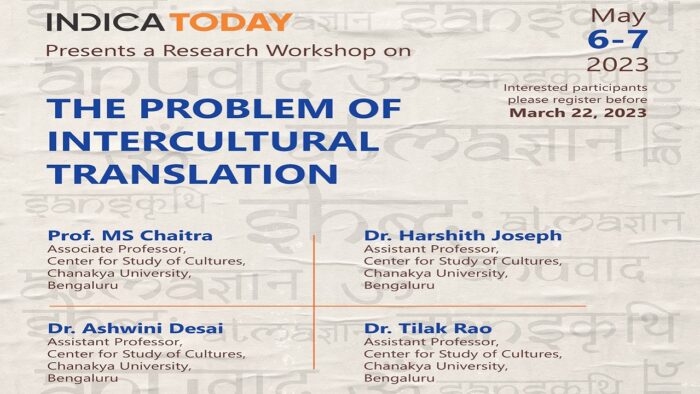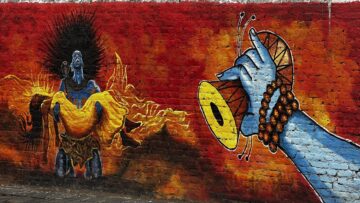Background
For human beings, language is one of the most significant aspects of their existence in this world. The significance of language is due to several reasons. The most obvious reason is communication among human beings within a linguistic community. Besides the function of communication, language is also important to access and transmit knowledge. This is so because language is one of the necessary factors that create conditions to access knowledge. Therefore, there is an interdependence between education and language.
In a culture like India, where people use multiple languages and dialects, depending on the social background, what should be the language of instruction is an important question. For the last 200 years, education (especially higher and professional education) in India was mostly made accessible in English, the language of the colonizers, by which our cultural and experiential understanding of the world cannot be adequately and sharply articulated. In this sense, making knowledge accessible in local languages is quite a significant step for the future of Education in India. Though there are other concerns pertaining to use of English in teaching, this cannot be seen as a task of waging war against English. Rather it is about making learning a possibility in a language which is more appropriate to the learners’ context (The National Education Policy 2020, also appears to be suggesting the same).
The 21st century world demands us to be acquainted with knowledge produced not just by our ancestors, but also with knowledge produced by different people who belong to different cultures. This brings us to at least two challenges. Firstly, what does it mean to talk about transmitting knowledge produced, for instance, in English by Europeans, in Indian languages? Here the challenge is not simply making some European text available in Indian languages and vice-versa but creating necessary conditions within which different cultural experiences are understood. Secondly, there is an additional factor of bringing knowledge of different scientific domains and Shastric explorations produced in India, into different languages and cultures. An interesting candidate who can assist in this process is translation.
However, the translation of Vedic and Shastric texts into the English language carries with it two major problems. The first, is the cultural baggage that comes with each language. Languages are products of cultures, and translating words from one language to another often involves the translation of concepts found in one culture, but not the other.
In English (and other European languages), over the course of time, theological concepts have become part of natural language to such an extent that we don’t realize their Christian origins (this includes all European languages including English). These theological concepts are all interconnected with one another and form a concept cluster.
The missionaries and orientalists, who were the first to translate the Vedic and Shastric texts , began to map the technical terms of Christian theological vocabulary onto words from the Indian languages, including Sanskrit. The problem with this project is the underlying assumption that these are religious scriptures. If it is the case that the Indian culture knows no religion or theology, then mapping Christian theological terms onto Sanskrit words will only end up distorting both the English and Sanskrit concepts. It is important to remember that each of the Indian traditions have produced rich theories about human psychology and happiness. Sanskrit terms like ‘Atman’, ‘Buddhi’, and ‘Manas’ are technical terms that play a specific role within these theories.
The second problem with the translation of Indian texts has to do with colonialism and the impact it continues to have on our culture. During British rule, the colonial education system taught us the translations of our texts, and the descriptions of our culture, provided by Western missionaries and Orientalists. These translations were presented as an accurate and objective, when in fact, the European intellectuals who studied these texts assumed they were religious in nature. As a result, they used theological concept clusters derived from their cultural setting, in order to interpret and translate these Shastric texts. Indians began to uncritically use Christian theological terms such as ‘God’, ‘soul’, and ‘salvation’ to translate Sanskrit concepts; which in turn give us a distorted understanding of these texts and thus prevent us from accessing the knowledge contained within them.
The same considerations apply to the translation of European texts (scientific, philosophical, theological) into Indian languages, since the concept clusters found in those texts developed over many centuries in Europe, and are absent in the Indian vernaculars.
Goal of the Workshop
With these issues at hand, this workshop intends to:
- Reflect on the relationship between language, knowledge and experience.
- Discuss the growth of British Education system and the problems of education in native languages.
- Discuss the role of translation in bringing texts of different cultures (Indian and Western) in today’s language and the problem of translation – cultural difference & challenges involved in translating Indian texts and Western texts.
The idea of the workshop is to familiarize the participants with these issues in the first place so that the participants, consequently, sensitize more people later about these issues.
Other Information
We invite interested scholars, researchers, and students with a sense of inquiry and reflection to join us for this two-day residential workshop with the details as mentioned below:
Date and Venue: May 6 and 7 2023. Ritambhara Retreat, No. 60, BMTC Layout, Kammasandra, Lakshmipura, Post, Bengaluru, 562162
Lodging and Food: Lodging and food will be taken care of by Indica Today
Key Domain Experts:
M.S. Chaitra:
- Position: Associate Professor, Centre for Study of Cultures, Chanakya University, Bangalore
- Profile: Chaitra’s work involves reconceptualizing Indian intellectual traditional traditions. His research team studies various facets of the Indian traditions against the backdrop of Western culture; ranging from Bhakti traditions, to the Dharmasastras.
Harshith Joseph
- Position: Assistant Professor, Centre for Study of Cultures, Chanakya University, Bangalore
- Profile: Harshith Joseph has completed Ph.D. in Translation Studies with a teaching and research experience of over eight years.. His research domain is Translation Studies, in which he is examining the problem of translation in the context of the intervention of Christian missionaries in the Kannada literary world.
Ashwini Desai
- Position: Assistant Professor, Centre for Study of Cultures, Chanakya University, Bangalore
- Profile: Ashwini is a researcher with 15 years of experience. Her research area is that of Literary theory and criticism.
Tilak M. Rao
- Position: Assistant Professor, Centre for Study of Cultures, Chanakya University, Bangalore
- Profile: Rao is trained in Vedic literature, covering 10 major Upanishads and is trained to chant the entire Kṛiṣṇa-Yajurveda (Taittirīya recession). In addition, he has studied classical Sanskrit including Kāvya, Panini’s Aṣṭādhyāyī, vedānta, nyāya, sāṃkhya, and Yoga. His current areas of research include Indian political thought with reference to arthaśāstra and dharmaśāstras, among others.
Interested applicants are encouraged to Register for the workshop before April 30, 2023. To Register please click on the button below.
Disclaimer: The opinions expressed in this article belong to the author. Indic Today is neither responsible nor liable for the accuracy, completeness, suitability, or validity of any information in the article.






